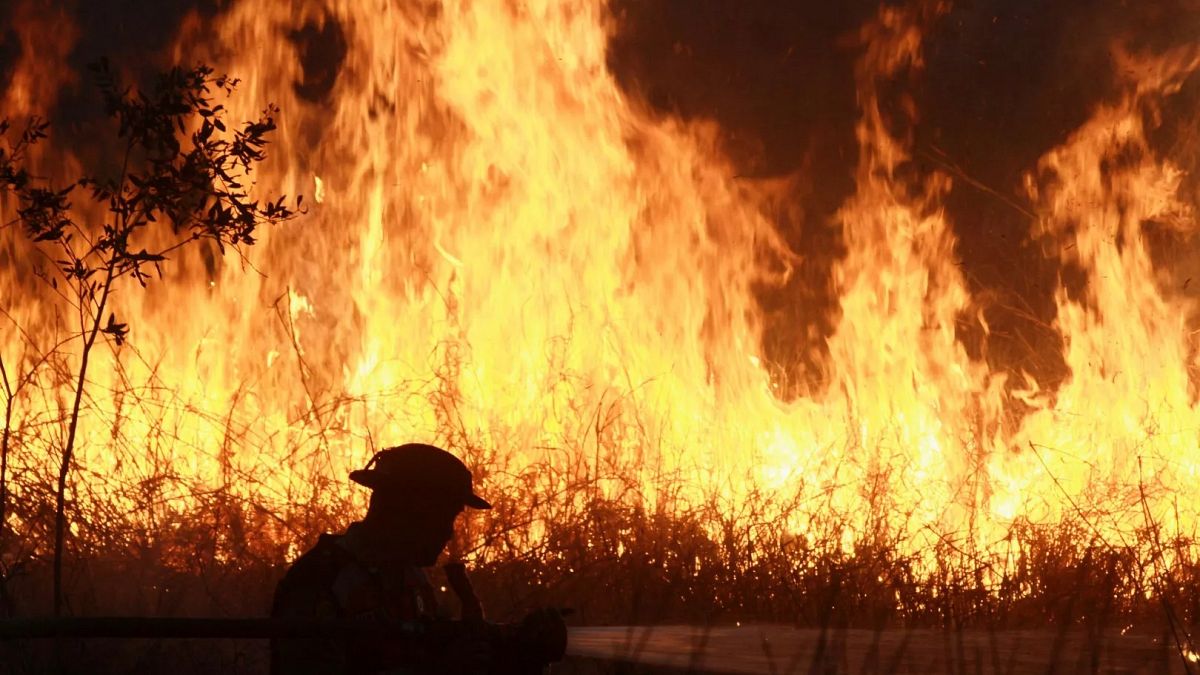

The interconnected world we inhabit brings forward a spectrum of challenges and developments, ranging from ecological to technological and geopolitical spheres. As serene as the pace of life may sometimes feel, these underlying currents call for our mindful awareness and understanding.
In Indonesia, authorities have taken proactive measures to address a recurring environmental issue that poses significant health and ecological risks. A concerted effort has seen the arrest of 44 individuals who are suspected of deliberately starting forest fires. These fires, often ignited illegally by plantation owners or small-scale farmers seeking to clear land for planting, have become a seasonal phenomenon, contributing to widespread toxic haze. The National Disaster Mitigation Agency has expressed the urgency of curbing such acts to safeguard both the environment and public health.
Shifting focus to the digital realm, a study has highlighted challenges faced by social media platforms in managing content related to misinformation. Specifically, a critical examination of Elon Musk’s platform, X, has unveiled shortcomings in compliance with European Union guidelines. Despite receiving 125 reports of Russian disinformation, only a singular report resulted in removal, leaving the majority unaddressed. This situation underscores the ongoing complexities of ensuring reliable information in the digital age.
Turning our attention to humanitarian concerns, an alarming alert has been sounded by over 100 organizations regarding the dire situation in Gaza. Prominent groups like Doctors Without Borders and Amnesty International have highlighted the widespread famine conditions looming in the region. The call for immediate action resonates with the necessity of international support and intervention to alleviate the human suffering unfolding in Gaza.
On the legal and environmental front, an important development from the International Court of Justice has stirred reflections on global climate commitments. The court has asserted that inaction on climate change from nation-states can be seen as a violation of international law, emphasizing that non-participation in agreements like the Paris Accord does not absolve countries from their environmental responsibilities. This perspective encourages nations towards a unified approach in the fight against climate change.
Examining another geopolitical narrative, recent reports have drawn attention to the complexities of immigration policies and practices in the United States. Amidst these discussions, a notable case has surfaced involving an Afghan interpreter named Zia, who had provided invaluable assistance to the U.S. military. Despite his efforts and adherence to legal procedures, Zia finds himself in a precarious situation after being detained by ICE agents. The wider discourse on immigration reflects concerns over increased enforcement actions, overcrowded detention facilities, and the broader implications these have for people who, like Zia, have sought refuge and safety.
These stories, interwoven across different continents and subjects, remind us of the diverse challenges faced globally. They highlight the importance of continual reflection, empathy, and constructive engagement in addressing the complexities that shape our world. As we navigate these issues, a calm yet vigilant approach remains essential in fostering solutions that uphold the values of justice, truth, and compassion for all.
Source: {link}
